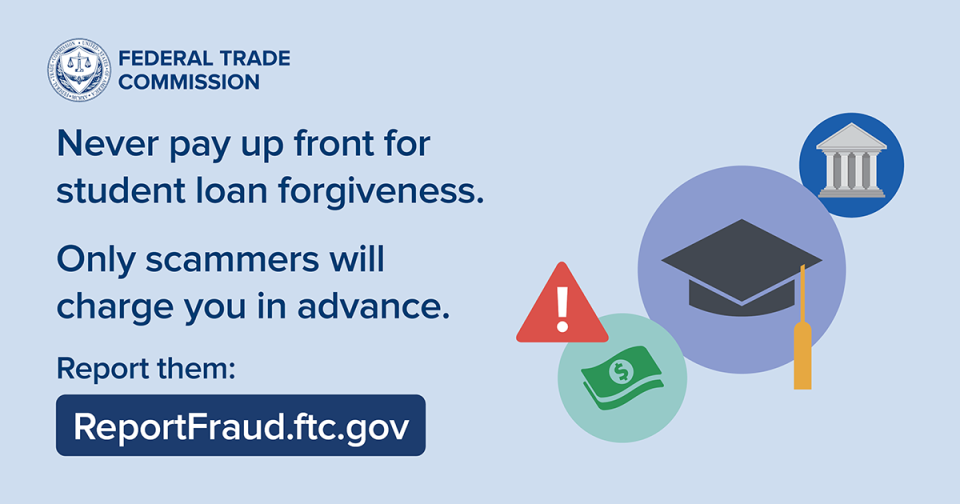You’ve probably already heard about the new government plan that will forgive some federal student loans, once it’s up and running. Also in the news: the federal student loan payment pause has been extended. Visit the U.S. Department of Education to learn more. But scammers are watching the news, too, so know this: you don’t need to do anything or pay anybody to sign up for the new program — or the pause. Nobody can get you in early, help you jump the line, or guarantee eligibility. And anybody who says they can — or tries to charge you — is (1) a liar, and (2) a scammer.
Right now, the Department of Education is working hard on the details of the new plan: who’s eligible and how to apply to get your student loan debt cancelled. It won’t happen overnight, and they’ll announce it widely when the program opens up for debt forgiveness. Sign up for Department of Education updates to be notified when the process has officially opened.
Meanwhile, check on your federal loan servicer: be sure you know who they are, and that they have your most recent contact info. That will help you get the latest on the cancellation and pause.
Also, remember that there’s a whole separate program you might be eligible for: the Public Service Loan Forgiveness (PSLF) program. If you’re eligible, you’ll get federal student loan forgiveness after you have 120 qualifying payments. And until October 31, 2022, the limited waiver offers additional credit for time that previously didn’t count. Check out the PSLF Help Tool to learn more.
And remember: don’t pay anybody who promises you early or special access, or guaranteed eligibility. Those are scams. If you spot one, tell us at ReportFraud.ftc.gov.
Subscribe to the FTC’s Consumer Alerts to get updates on avoiding student loan debt relief scams.
Updated November 23, 2022 to reflect the extension of the student loan payment pause. Visit the U.S. Department of Education to learn more.

